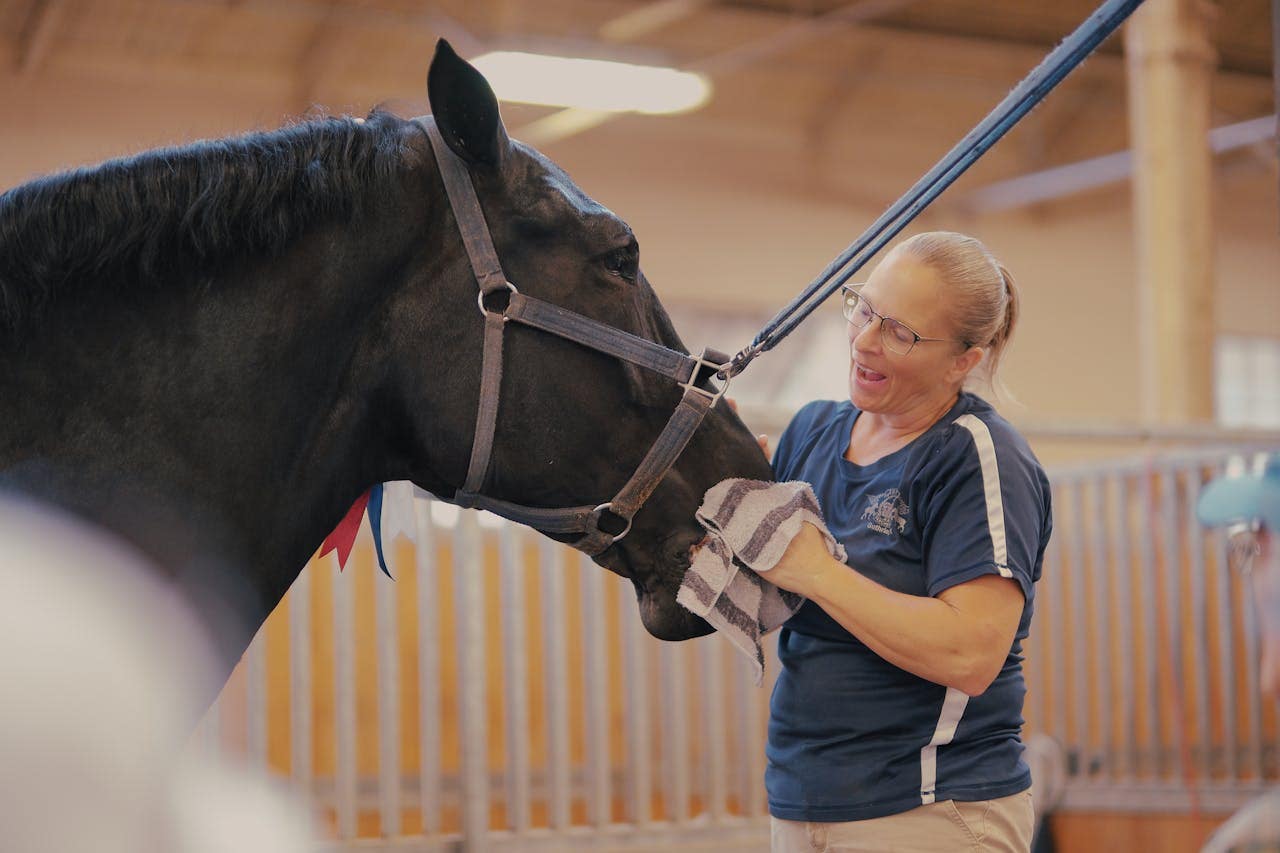
How to Become a Horse Trainer
How to Become a Horse Trainer
Always loved the idea of training horses or fancied yourself something of an equestrian? Perhaps your dream career path awaits as a horse trainer.
Our sources for this article:
What does a Horse Trainer do?
A horse trainer can work in a vast array of fields, from dressage and showjumping to training police horses for duty.
At its most basic, horse trainers get their horses used to being around humans and ready for whatever activity they are destined for.
It can be much more complicated than that, though. Horses have to adapt to wearing saddles, as well as being ridden. In addition, some horses, and horse trainers, specialise in racing, show jumping, or horse shows, each of which comes with its own challenges.
Horse trainers have to be astute. They’re always watching out for changes in behaviour. They also need to be good at analysing how to correct problems like kicking and biting. Young horses and those who have been traumatised by something are often reluctant to allow humans to touch them at first.
They’re also in charge of horse care and often the first people to spot when a horse is sick and needs to go to a vet.
Some horse trainers work solo, spending most of their time one-on-one with horses. Others manage entire stables, supervising other staff and developing regular training routines.
As a horse trainer, you’ll also likely have to deal with administrative work, like keeping training records up to date, keeping owners up to date, and managing preparations for race or show days. This can also involve liaising with jockeys, riding instructors, and horse owners. Racehorse trainers especially have a lot of management on their hands. Getting the horses to the racetracks and instructing jockeys about what they need.
If you’re self-employed and have staff, you’ll also need to manage their salaries and monitor the horse’s overall development.
Do Horse Trainers need any experience or qualifications?
Whether you need any particular qualifications to become a horse trainer depends on the sort of training you’d like to do.
Racehorse training requires the most rigorous qualifications: a license to train from the British Horseracing Authority (BHA) or an apprenticeship.
If you go through the apprenticeship route, you can take a senior equine groom advanced apprenticeship. Entry requirements are usually 5 GCSEs at grades 9-4 (A* to C) or equivalent, including English and maths.
These apprenticeships take around 18 months to complete and give you a well-rounded idea of the industry as they align practical work alongside classroom learning.
Alternatively, you could already be familiar with stables, whether that’s because you’re a groom, rider, or instructor. Then, you could become an assistant trainer. Perhaps with a little help from a training course in animal care before moving onto the next stage: applying for your horseracing training license.
A career within the police is a little more straightforward. The ability to ride and a demonstrable love of animals, and some experience with them, is all they ask for in their assistant trainer roles.
Do you need to have worked with horses previously to be a Horse Trainer?
To become a fully-fledged horse trainer, you definitely need to have worked with horses previously, usually as an assistant trainer or vet.
However, you don’t need to have worked with horses to become an assistant horse trainer. You should be able to demonstrate some experience with animals, whether that’s through riding horses, a course on equine science, or working as stable staff for a while. It’s also good to have some horsemanship.
You might start out giving people riding lessons, and after a few years experience, work your way up to owning your own business.
What skills are needed to be a Horse Trainer?
Aside from the ability to ride and a way with horses, horse trainers need a wide range of skills, including attention to detail, as it’s often trainers who spot when a horse needs to see a farrier or a vet.
They’ll need to know how to design and monitor progress on courses and report this progress back to customers. Customer service skills are critical, as is the ability to use computers at a basic level.
As well as being able to work well alone, many horse trainers will have to be able to work alongside others as well. Higher positions can include management and training duties, so communication skills are a plus.
It can also be fairly stressful to train horses. Whether you’re working with a thoroughbred racehorse or a pony, there are likely to be some stressful situations. Being able to stay calm under pressure and make reasoned decisions is a great skill to have here.
Are you interested in stepping into this rewarding career field? Find out more about how we can help you get started on your education journey today.
Browse Animal Health and Wellbeing Courses Now!

